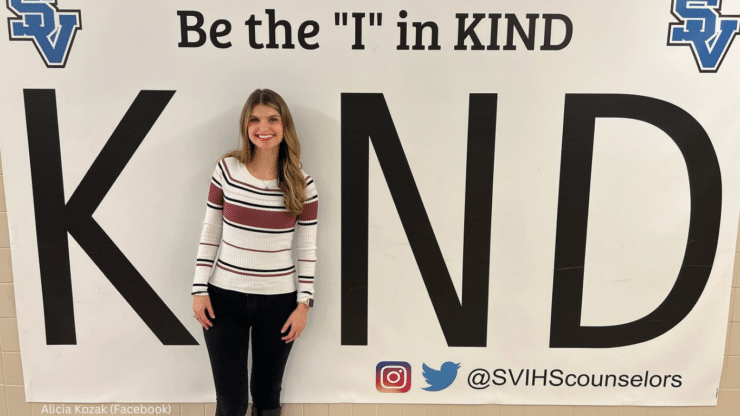Motivational Speaker, victim and missing persons advocate, internet safety expert & survivor Alicia “Kozak” Kozakiewicz recently sat down with famous YouTuber Anthony Padilla to talk about her survivor story as well as the importance of internet safety for kids.
Alicia’s story is dark and harrowing. She was groomed by an online predator when she was just 13 years old and kidnapped for 4 horrible days. Another predator, who was watching a live stream of Alicia being assaulted online, noticed Alicia was the same girl on a missing person and notified police. This lead to Alicia’s rescue.
Had the second predator not outed Alicia’s assailant, she would have most likely been killed.
ALSO: Omegle is the Lesser Known Chat Site That Endangers Children
One of the many disturbing things about Alicia’s story is that it’s not unique. Every day, children are groomed online by predators and most of them have no idea that it’s happening until it’s too late.
In Anthony Padilla’s interview, Alicia demystified the concept of grooming, explaining, “Grooming is really just pretending to be a child’s friend, telling them what they want to hear versus what they need to hear.”
Because of how the internet has changed and continues to change, the way online predators operate constantly shifts as well.
The common belief that all predators are old, creepy men is no longer true. Some of them can be younger and even good-looking. The ways that they get kids to trust them are extremely manipulative, so it’s important for kids to be aware of the signs of online grooming and the signs that someone is a predator.
Alicia thought she was talking to a boy her age. She had no idea that the boy she was talking to online was actually a 38-year-old man with a torture dungeon.
In the interview, Alicia shared some important tips for kids and parents to keep children safe online.
1) Remind your child that they can come to you no matter what and will not need to worry about getting in trouble or being shamed. Tell them that you love them no matter what and will never lose your love.
2) Always check in with your child and ask what they’re doing to remind them that you care.
3) Talk to your child about what online predators are and how they operate so that they can see the red flags and not fall for their manipulation tactics.
Alicia discusses how online predators appear and act, saying, “…the fact is, just like anybody can be a victim, anybody can be a predator. And what I really want kids to know now is that the predators are getting younger and younger and younger. They don’t need to catfish, they don’t need to pretend to be somebody else. That is their real social media, but what they’re hiding…is their intentions.”

Many predators will ask for inappropriate pictures of kids and then use them as blackmail to get more pictures or get the child to do what they want without telling their parents or an adult they trust.
Remind your child never to share inappropriate pictures with anyone, even if they think they can trust that person. Kids need to get used to always assuming that anything they post or send online will be posted publicly, even if it was sent privately.
Online predators will always be where kids are, even a bible app! No place online is safe from predators, so it’s important for kids and parents to remain vigilant. It is a difficult topic to talk about with kids but it’s a very important one that will keep them safe.
For more internet safety tips as well as more information about Alicia’s internet safety advocacy, check out The Alicia Project.









Add comment